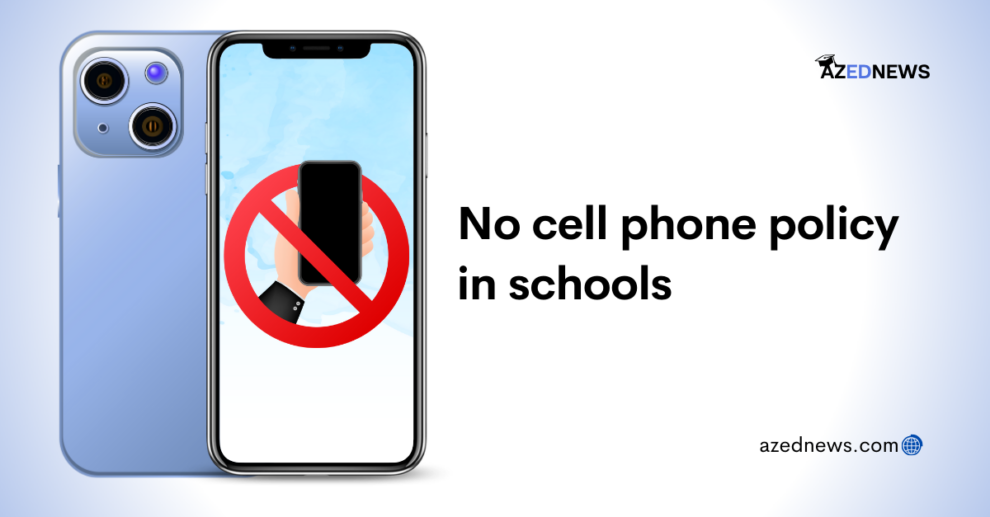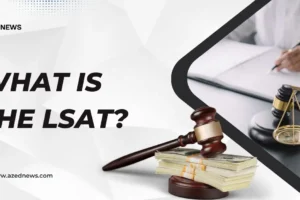An increasing number of schools across the United States are implementing a No Cell Phone Policy in Schools. A lot of schools across the United States are banning students from using cell phones in classes since they believe it causes distraction and interferes with the learning process. This is quite understandable since the primary aim of a school is to create an environment where quality education is imparted to the students.
Table of Contents
The ban on cell phones is a controversial topic of debate among students, parents, teachers, and authorities. Various tech experts believe that there are both positives and negatives associated with allowing cell phones in school. In the past, a lot of schools have installed internet jammers to prevent students from using cell phones on campus. However, it was made illegal under the Federal Communications Act of 1934 because these jammers can cut off 9-1-1 calls.
Students generally sided with the side that allows them to bring cell phones onto school grounds when asked which kind of phone restriction policy they preferred, citing the convenience of being able to contact their parents in case of emergency.
In response to the problem of communication between parents and students, parents also assert that mobile phones are indispensable and should always be carried by students. This raises concerns about the safety of students and the possibility that a child in danger may be unable to contact a parent for help. Additionally, parents think that giving a child a phone instils responsibility.
To find a middle ground due to these concerns, schools in the USA have developed certain rules and regulations regarding cell phone usage in schools which have been covered in the blog given below.
Why are cell phones in school trending?
Earlier this year, a lot of schools in the United States passed a law that required public schools to ban students from using cell phones during class time. These new set of rules reflect the intense global crackdown on young people and social media.
As per the recent report from UNESCO, the educational and cultural agency in the United States found that nearly one in four countries now have laws and policies that ban and restrict students from using cellphones in school.
Such bans typically make exceptions for students with disabilities and educational uses approved by teachers.
These bans also prevent students from scrolling through various social media channels, sending bullying text messages, and reducing classroom distractions. However, cutting off students from cell phones could also disproportionately affect those kids who have a job or family commitments. Moreover, it is feared that these bans could promote harsh disciplinary actions like school suspensions.
Some schools have noticed an evident decrease in cyberbullying, but there is still ongoing research being conducted to estimate the long-term effects of cell phone bans.
Why are schools banning cell phones?
Various schools in the United States have been implementing a cell phone ban for a few years now. Cell phone ban was quite common in the past, however, eventually, the intensity faded. In 2010, when iPhones and Facebook gained popularity, they became a major hindrance in academics for students. This led to almost 90% of schools prohibiting cell phones during school hours.
Students with low-income families who could not afford a laptop relied on cell phones for educational purposes which caused some schools to reconsider the ban policy. The primary reasons for schools to consider banning cell phone are:
- Young people film TikTok of violent fights and post them on TikTok. Students were also seen majorly participating in social media challenges that could potentially vandalise the school property.
- Around 16% of high school students in the United States have complained about being bullied via text messages or social media platforms like Instagram and Facebook.
- Using cell phones during educational hours could be quite distracting for students. Statistically, around 200 students who use Android phones receive nearly 237 notifications on their cell phones during study hours. This is a distressing number since it could play a vital role in distracting students during their primary hours.
Overview of No Cell Phone Policy in Schools:
Cell phones and electronic devices serve as outstanding tools of instruction and learning resources if used efficiently by the students. Most schools encourage students to use electronic devices that cater to learning and teaching. However, it has also been noticed that most students on these devices are not fully engaged in learning. Hence to preserve the environment of learning and teaching, most high schools apply the policies given below:
- Use of cell phones and their applications is strictly restricted in certain areas such as science labs, restrooms, physical education areas, and classrooms unless permitted by a qualifying staff member exclusively for educational uses.
- Students are required to follow the instructions given by teachers during phone usage hours which also include ending phone conversations for student-staff interaction, using appropriate volume. Additionally, when cell phones are in use, they should be on silent, and no audible ringtone should be heard.
- Students who use cell phones or their functions which could affect the educational environment of the school, violate others rights, violate school conduct rules, harass or bully staff or students will be subjected to severe disciplinary actions which could include suspension or expulsion as well.
Usually, if a student commits a mistake pertaining to cell phone usage within the campus, they are given multiple chances with each offence having a consequence of its own. They are:
- First Offence: Until the end of the term, the gadget will be kept in the administration office. After the session, students will review this guideline and their behavioral contract before picking up their phones.
- Second offence: The gadget will be kept in the main office until the end of the day for the second offence. The Administrator will get in touch with a parent or guardian and provide a phone receipt.
- Third Offence: Until a parent or guardian picks it up, the confiscated device will stay in the main office. An administrator will set up parent contact.
Advantages of banning cell phones in educational institutions
There are numerous debates surrounding cell phone usage in school. Some advantages surrounding this are:
- It reduces distractions: Cellphones can be extremely addictive and disrupt focus which hinders learning process and engagement in the classroom. Additionally, students can easily get distracted via social media platforms. Banning cellphones promote attentiveness towards classes, activities and lessons.
- Better Academic Results: Research has linked the prohibition of mobile phones to greater test scores, possibly as a result of improved concentration and decreased multitasking.
- Diminished Cyberbullying and Social Pressure: Students’ mental health can be severely impacted by online abuse and social media demands. Cyberbullying can flourish on social media and other digital communication platforms, endangering students’ mental health and fostering a hostile learning atmosphere. Phone bans in schools reduce these problems and foster a safer atmosphere.
- Decreased Dependency on Technology: Reliance on technology too much can obstruct the growth of analytical and problem-solving skills. Students are encouraged to rely more on their own intelligence and resourcefulness when phones are banned. Additionally, using text messages, internet searches, and secret notes, cellphones can make cheating easier. The integrity of academic performance is compromised by this.
- Safer cycling and walking: Using a phone while walking or cycling might encourage risky habits like texting, which can result in collisions.
- Prevent Theft and Damage: Cell phones are susceptible to theft or damage while at school, which can result in monetary losses and annoyance.
- Restricts inappropriate content: Limit Unfiltered smartphone internet use runs the risk of exposing students to offensive or inappropriate content.
- Steer clear of misleading communications: False and unwanted communications that don’t reflect the real happenings.
- Prevent Addiction and Dependency: Using a phone excessively can cause anxiety and addiction, which can impede social engagement and personal growth. Some students have behavioral issues as a result of their easy addiction to texting.
- Social well-being: Students may experience social pressure and low self-esteem as a result of the unrealistic ideals that social media feeds frequently present.
- Uninterrupted sleep and wellness: Utilising phones after midnight might cause sleep disturbances and weariness, which can have an adverse effect on general health and wellness.
- Improved Social Interaction: Less reliance on digital communication promotes in-person interactions and builds closer bonds between educators and students.
Disadvantages of banning cell phones in high schools:
Again, this is a topic with conflicting opinions. Some of the disadvantages of this concept is:
- Limited Access to Educational Materials: Research tools, e-books, and online courses are just a few of the many educational materials that can be found on smartphones. A total ban might make it more difficult to use these resources. The internet provides access to information both when travelling and during school breaks.
- Communication Impairment: For older students in particular, cell phones can be crucial for emergency contact with parents or guardians. A ban on them would restrict accessibility and cause needless worry. Cell phones can be used in lockdown and power outage situations. Cellphones are helpful for the security of students who drive or use public transportation to college. If a mobile phone is available, pupils can instantly communicate information with their parents, teachers, and other caregivers.
- Limited Access to Educational Materials: Research tools, e-books, and online courses are just a few of the many educational materials that can be found on smartphones. A total ban might make it more difficult to use these resources. The internet provides access to information both when travelling and during school breaks.
- Communication Impairment: For older students in particular, cell phones can be crucial for emergency contact with parents or guardians. A ban on them would restrict accessibility and cause needless worry. Cell phones can be used in lockdown and power outage situations. Cell phones are helpful for the security of students who drive or use public transportation to college. If a mobile phone is available, pupils can instantly communicate information with their parents, teachers, and other caregivers.
Frequently Asked Questions
1. Which countries have banned the use of cell phones in schools?
A lot of countries including France, Italy, and Portugal have fully banned the use of cell phones in their schools unless there is any emergency or exception submitted by the student.
2. Why are cell phones banned in schools?
Cell Phone addiction and focus issues might make it difficult to learn and participate in class when using one. Also, social media platforms are a common source of distraction for kids. Prohibiting them encourages students to pay attention to lectures and in-class activities.
3. Why are schools not allowing phone use?
Schools around the United States are progressively implementing a no-phone policy, which requires students to put away their gadgets for the duration of the school day, to reduce distractions and improve learning opportunities.
4. Has the UK banned cell phones in school?
The government has now decided to outright forbid cell phones in all English schools. It is anticipated that the new policies will let pupils bring cellphones to class. kids can only use them on the way to and from school, though, as kids will not be permitted to use them throughout the school day.
5. Are cell phones distracting to students?
Our focus is diverted from the tasks and activities we are engaged in by cell phones, which can be distracting. According to recent studies, our ability to concentrate clearly is diminished by the mere sight of our phones—even when they are off and we are deliberately concentrating our attention on something else.
Conclusion
It is important to note that the cell phone usage could have a significant impact on students. With over 70% of education relying on electronic resources, eradicating cell phones is not seemingly possible. More and more educational institutions are increasingly permitting students to use their phones as instructional aids.
Other technological issues are brought on by students using cellphones in class. Certain schools have banned phones from connecting to the school Wi-Fi because they found that letting all of the kids use their phones at once reduces school bandwidth speeds.
Students in middle and high school can also use their phones for a wide range of purposes, including document sharing, photo capturing, and quick access to information. Moodle is a particular program that educators can use to enhance students’ access to content. It is an online course management system. These apps provide a wide range of functions, including parent messages, scheduled reminders, and language translation.












Add Comment